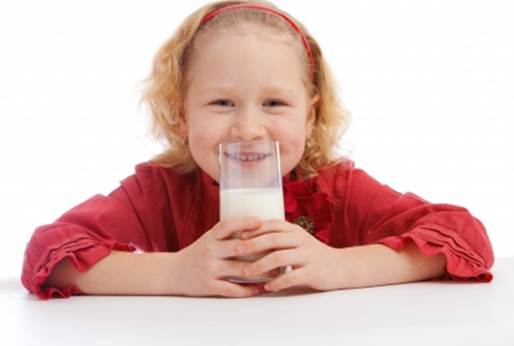Milk increases children’s height. So, how
much milk per day should a child consume?
According to Professors, a child aging from
1 to 3 must drink 500ml of processed (cow) milk and 300-400ml is for child
older than 3 years old.
Milk (from cow, buffalo, goat…) is highly
nutrient. It contains protein, lipid, sugar, and vitamin and mineral that helps
children to grow and develop healthily.

Milk
increases children’s height.
Milk protein is valuable as its amino acid
content is balanced with high synchronization. Milk lipid provides lots of energy,
dissolvable vitamins, especially vitamin A.
Milk also has vitamin B, especially riboflavin
(B2). Inside yogurt, the amount of vitamin B1 and B2 is much greater than that
in usual milk by 20-30%. Besides, milk owns a large quantity of calcium in form
of casein. Calcium/phosphorus ratio is appropriate thus synchronization and metabolism
are enhanced.

Only
milk is not enough for kid.
Milk lipid features high biological value
as in state of emulsion, it is easily dissolved, creating opportunity for
consumption and metabolism. Additionally, milk lipid contains much strong lipid
acid needed. Lecithin is a type of phosphatide which is vital in converting and
pulling cholesterol out of the body.
Though milk is good, it is not enough. Children
must be fed with various kinds of food through gruel, rice and cereal…, which
provides children with full nutrition as well as meets the children’s
requirements for growth.
Nutrient contents (vitamin, mineral…) in
milk partly contribute to children’s daily diet. Milk fiber’s quantity is too
low. Thus, in case a child drinks too much milk, he or she will get
constipation.